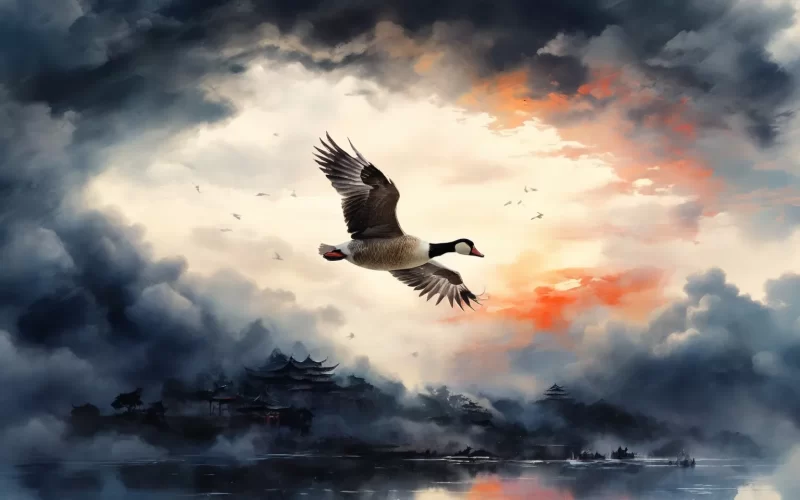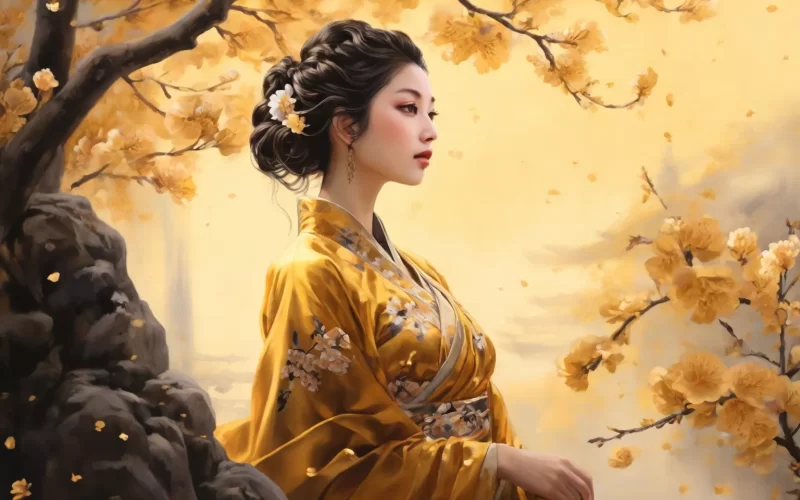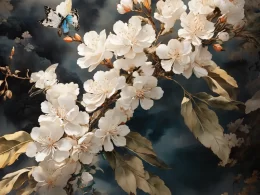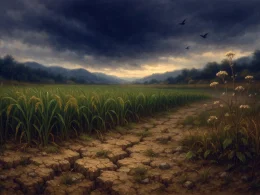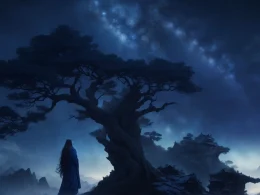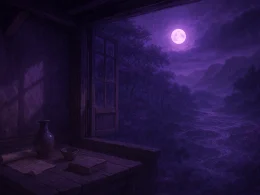Line after line has flown back over the border.
Where are you headed all by yourself?
In the evening rain you call to them --
And slowly you alight on an icy pond.
The low wet clouds move faster than you
Along the wall toward the cold moon.
...If they caught you in a net or with a shot,
Would it be worse than flying alone?
Original Poem
「孤雁」
崔涂
几行归塞尽,片影独何之?
暮雨相呼失,寒塘欲下迟。
渚云低暗渡,关月冷相随。
未必逢矰缴,孤飞自可疑。
Interpretation
Composed during the late Tang Dynasty by Cui Tu—a poet marked by constant wandering and political disillusionment—this work employs the image of a solitary wild goose as a metaphor for his own rootless existence. The titular word "solitary" (孤) establishes the poem's emotional core, projecting the poet's profound loneliness onto this migratory bird that flies alone through stormy twilight skies, separated from its flock.
First Couplet: « 几行归塞尽,片影独何之? »
Jǐ háng guī sài jǐn, piàn yǐng dú hé zhī?
Flight after flight has vanished toward northern frontiers— Where drifts this lone shadow now?
The opening juxtaposes the vanished flocks with a single lingering silhouette, immediately foregrounding the theme of isolation. The rhetorical question "where drifts?" mirrors the poet's own existential uncertainty as an exile.
Second Couplet: « 暮雨相呼失,寒塘欲下迟。 »
Mù yǔ xiāng hū shī, hán táng yù xià chí.
Through evening rain it calls unanswered; Above chill ponds it hesitates to alight.
This cinematic close-up captures the goose's distress: its unanswered cries and tentative circling embody the poet's own social alienation and indecision in unfamiliar territories.
Third Couplet: « 渚云低暗渡,关月冷相随。 »
Zhǔ yún dī àn dù, guān yuè lěng xiāng suí.
Over dark isles, low clouds press heavy; The frontier moon trails cold behind.
The widening perspective reveals a desolate journey ahead. The oppressive "low clouds" and emotionally distant "frontier moon" externalize the goose's (and poet's) psychological landscape—a world devoid of warmth or guidance.
Fourth Couplet: « 未必逢矰缴,孤飞自可疑。 »
Wèibì féng zēng zhuó, gū fēi zì kě yí.
No hunters' arrows may find their mark— Yet solitary flight breeds its own dread.
The concluding insight transcends literal danger: the very condition of isolation becomes the true threat. The poet recognizes that even without external persecution, sustained loneliness corrodes the spirit.
Holistic Appreciation
The poem employs the "solitary wild goose" as a symbolic image, beginning with scenic description and progressively deepening to achieve perfect integration of natural imagery with human emotion. The poet starts with observing the geese, then depicts their flight, pauses, and renewed journey, before contemplating their uncertain path ahead, ultimately projecting his own feelings of isolation onto the bird. The poetic sentiment is melancholic yet restrained, with each character tightly revolving around the central theme of "solitude" while every line strikes a emotional chord, creating a somber yet profoundly meaningful poetic canvas. Particularly noteworthy are the vivid yet emotionally charged descriptions of "dusk rain," "chilly pond," "island clouds," and "cold moon."
Artistic Merits
The poem demonstrates rigorous structure and natural rhythm, with concise yet vivid language. It employs a compositional technique moving from distant to near, static to dynamic - beginning with the vanishing flock of returning geese in the distance, then focusing on the hesitant solitary goose nearby, subsequently contemplating the uncertain journey ahead, before culminating in direct emotional expression. The poet particularly excels at using natural scenery to reflect inner states, creating tension between the solitary goose and its environment to convey complex emotions. Resonating with Du Fu's "The solitary goose neither drinks nor pecks, Its cry mournful and piercing," this work stands as a masterpiece of late Tang poetry that equally values realistic depiction and emotional expression.
Insights
"Solitary Wild Goose" not only truthfully portrays the poet's own wandering life but also profoundly expresses the spiritual predicament of individuals adrift in turbulent times without official stability. It maintains powerful contemporary resonance: people often face loneliness, hesitation and uncertain paths in reality. How to comfort one's heart and persist in flight may be precisely the philosophical contemplation left to us by the poem's concluding line "Its solitary flight naturally invites doubt." Though alone, the goose's determined forward movement perhaps represents the poet's secret hope for himself.
Poem translator
Kiang Kanghu
About the poet
Cui Tu(崔涂), should be today's China zhejiang tonglu, jiande area people. Xizong Guangqi bachelor, strong guest Bashu, the old tour of Longshan, so much to write travel sad work.






